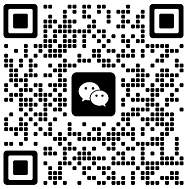- 慧科研-初中-高中-大学科研项目及课题定制服务平台
- Wechat:mollywei007
做科研的高中生英语怎么说

How to Describe High School Students Conducting Research in English
In English, how do we articulate the scenario of high school students undergoing scientific research? This may not seem like an everyday conversation, but it's increasingly important as more and more high school students take an early interest in the sciences and begin engaging in research activities. Whether it's for the purpose of applying to universities, presenting to academic audiences, writing research papers or merely general communication, good command of English is a prerequisite. This article explores how high school students involved in science research can effectively communicate their involvement, activities, and achievements in English.
1. Describing the Research Experience
Conveying the research experience involves discussing the primary responsibility, the nature of the project, and the tasks performed. A student could say, "As a researcher at XYZ institution, I was involved in studying the genetic structures of certain plants." They might include the duration of the project, the tools and techniques used, and the outcomes or findings of the research.
A solid understanding of scientific terms and their correct usage is very important. For instance, knowing the difference between quantitative and qualitative data can help a student explain their research methods effectively.
It is also helpful to highlight collaborations, teamwork, and any concrete experiences of scientific rigour they have acquired during this period. Students could mention things like, "worked in a dynamic team of five" or "conducted rigorous data analysis using statistical tools."
2. Expounding on the Challenges Encountered
Undoubtedly, conducting scientific research poses its own challenges, especially for high school students. Discussing challenges experienced presents an opportunity for students to highlight their problem-solving skills, resilience, and determination. This could be phrased as, "One challenge we faced was conducting experiments with limited resources, but we overcame this by utilizing available resources creatively and efficiently."
Students could also illuminate how they worked around complex problems, managed their time effectively while balancing schoolwork, or tackled unexpected outcomes or results.
In conclusion, discussing challenges is not just about narrating difficult experiences. It is also about illustrating tenacity, resourcefulness, and problem-solving prowess.
3. Highlighting Achievements and Impact
High school students conducting research should also talk about their accomplishments or milestones achieved during the research process. Remember, achievements vary in their degrees; they might range from successfully obtaining a sought-after result to having a research paper published or receiving recognition or awards for the work done.
Moreover, highlighting the impact of the research goes a long way in demonstrating the student’s understanding of the real-world implications of the scientific research. They can articulate this as, "Our research has potential implications in improving plant yield, thereby contributing to food security in resource-limited settings."
On the whole, effectively communicating achievements and impact reflects the student's proactive and results-oriented approach.
4. Concluding
In conclusion, describing a high schooler's scientific research experience involves more than just listing tasks and responsibilities. It includes showcasing their understanding of scientific concepts, methods and terms, demonstrating tenacity and resourcefulness, and articulating their achievements and impacts.
Understanding how to effectively present these details in English is an essential skill in itself, opening up several avenues for further opportunities in academia and beyond.
This goes far beyond simple communication and enters the domain of presenting oneself accurately and impressively, a skill that is invaluable in the academic and professional world.
5. Frequently Asked Questions (FAQ)
Question: How relevant is describing research experience to university admissions?
Answer: Very relevant. University admissions committees, particularly for science-related courses, are always interested in students who can show practical engagement with science. It also illustrates the student's enthusiasm for science, ability to work independently and diligently.
Question: How much technical detail should I include in describing my research?
Answer: The amount of technical detail depends on your audience. For academic audiences or scientific papers, it's appropriate to delve into technicalities. However, for a lay audience or for broad contexts like university applications, it's best to keep technical jargon to a minimum while still accurately conveying the nature of your research and its significance.
Question: Are there any resources to improve my scientific research vocabulary?
Answer: Yes, many resources are available, such as scientific journals, academic resources online, English for Science textbooks or handbooks, and even workshops that specifically target scientific English and technical writing.
【项目咨询请加微信:mollywei007】
相关推荐
© 2025. All Rights Reserved. 沪ICP备2023015751号-2














